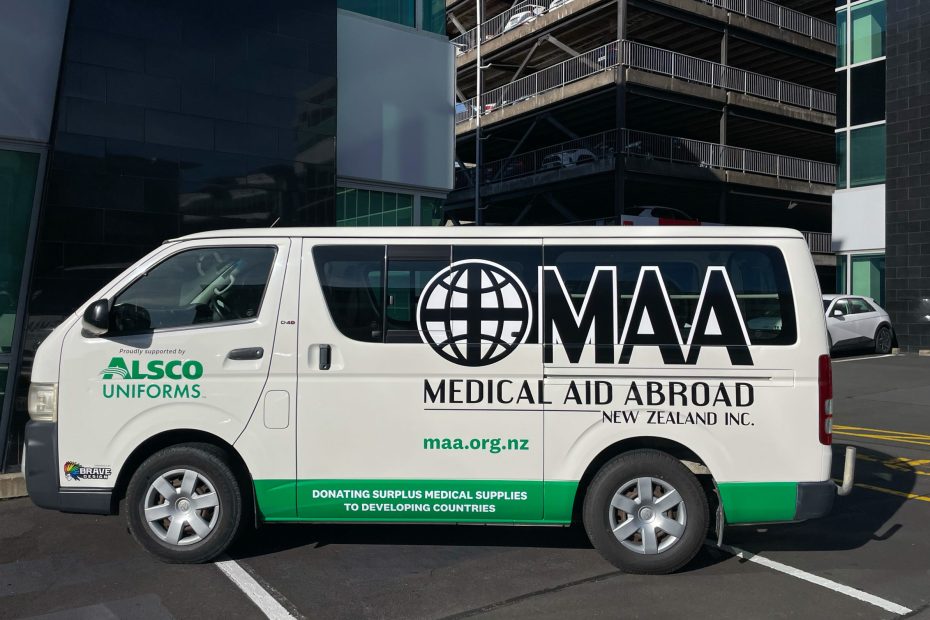Workplace germs are scary, but are all germs bad?
Germs such as bacteria or viruses are actually very small living organisms called microorganisms (or microbes). But not ALL microbes are bad. In fact, when helpful bacteria spreads in our bodies, they protect us from illness (caused by bad bacteria). Good bacteria actually help with food absorption and aid digestion. Bad germs though can cause serious illnesses like pneumonia or the flu (influenza).
Mayo Clinic recommends implementing proper hand hygiene, which entails frequent and thorough hand washing to help protect you from illnesses like common colds and the flu.
Influenza is a common virus that impacts work productivity by causing absenteeism. It is preventable by exercising proper hand hygiene. Proper hand hygiene involves washing hands before and after meals, after touching raw and cooked food and after visiting the toilet. To curb flu, avoid hand contact to the eyes, nose or mouth, as touching is a common way of germs entering your body.
Proper hand hygiene doesn’t mean washing with soap and water only but also drying. Failing to dry hands helps spread germs because germs do breed in moist environments. Electric drying is an effective method of preventing germs but paper towels are effective in the hospital or clinic settings, for example.
Germs and Work Absenteeism
If employees don’t exercise good hand washing and drying techniques, they’ll get sick and won’t come to work. So a company’s efforts have to be directed towards replacing workers, or employees playing catch-up. And some medications can cause sluggishness and reduce morale and productivity.
Germs and Workplace Productivity
A healthy employee looks forward to coming to work. But when a workplace is germ-infested, it becomes an unsafe option. An unhygienic work environment makes workers dread work, decreasing their motivation and productivity.
Germs and Employer Losses
Studies show that employers lose billions of dollars due to ”presenteeism”. ”Presenteeism” (coming to work while sick) and absenteeism affect productivity. Treating common colds costs more than chronic illnesses. Employees lose productivity due to lack of concentration and fear of contracting illnesses. Missing work or coming to work when sick decreases effectiveness.
Most Affected Germ Areas in the Workplace
The workplace has high germ infestation due to shared spaces. Shared spaces attract germs due to cross-contamination and poor hygiene.
The following shared spaces are the most affected areas:
The Workplace Kitchen
The workplace break room is a frequented area where colleagues leave dirty dishes. Un-wiped kitchen sinks and shared washing sponges carry different types of bacteria. These bacteria are responsible for spreading diseases.
The Workplace Toilet
The toilet is probably the most used space in the workplace. Germs can cover every inch of a toilet seat. So can toilet seats cause or spread diseases like gastro?
Well, yes and no. It depends on how well a person washes their hands after using the toilet, especially if they touched a toilet seat with germs on it that are known to cause gastro-like symptoms. Good hand hygiene effectively neutralises the germs’ ability to transfer disease to another host such as a human.
Office Desks
Computers and computer keyboards are often left uncleaned in the office space. Employees often aren’t even aware of how to clean them. Even if using a cleaning contractor, a company often asks them not to touch office equipment, giving free reign to make themselves at home on keyboards and a person’s mouse.
Many employees type away at their keyboards unaware of the germs they’re working with. A simple cleaning procedure of regularly wiping down with sanitiser is recommended. Ask the IT department to issue a memo on safe computer cleaning methods.
Office Telephone
The office telephone is a commonly shared device touched by different people. Different people carry different types of germs. It’s a good idea to sterilise the mouth and earpiece regularly as part of the cleaning regime.
Doorknobs, Lift Buttons and Sink Faucets
Doorknobs attract germs because everyone touches them and they are rarely cleaned. Unless you always touch doorknobs with paper towels or some other sort of cloth, the only way to protect yourself against any germs that may be residing on the doorknob or handle is to wash and dry your hands immediately. The same applies to lift buttons and sink faucets.
Do Germs Travel?
Germs do travel. Germs such as bacteria or viruses are actually very small living organisms called microorganisms (or microbes). Many microorganisms, though not all, can survive outside of the host environment.
Think of a sick colleague who has coughed into their hands in an office setting but didn’t sanitise their hands. To survive and thrive, these microorganisms only need moisture, warmth and food. Microorganisms can multiply in one person, escape that person’s body in some way (e.g., coughing) and then must find their way into another host before they die due to lack of food, water or too much light exposure.
Direct physical contact (like a handshake) helps germs spread faster. Consider for example, if Colleague A coughed into their hands and shook the hands of Colleague B.
And Colleague B doesn’t wash their hands or sanitise immediately. Colleague B risks infection if Colleague B touches her/his face, mouth or nose.
How to Prevent Germs from Spreading in the Workplace
There are various strategies an employer can use to prevent the spread of germs in the workplace. They include:
- Cleaning work areas or surfaces often. Germs lurk in often touched places like desktops. Wiping down work surfaces with disinfectant wipes helps prevent germs from spreading.
- Creating a hand-washing policy. Promote good hand hygiene, including regularly washing hands with water and soap; particularly after handshakes, visiting the toilet, and before and after snacks. Alcohol-based hand sanitisers offer the best protection. Health organisations like the World Health Organization (WHO) and the Center for Disease Control and Prevention (CDC) stress the importance of good hand hygiene.
- Installing alcohol-based sanitisers – these reduce bacteria populations and the transmission of viruses like Staphylococcus aureus. Companies like Fresh & Clean generally carry a wide array of alcohol-based hand rubs (including foams, liquids and gels). Studies show that implementing hand hygiene programmes using alcohol-based sanitisers reduces illnesses.
- Not going to work when sick – The flu spreads, so one droplet from a sneeze is often enough to trigger a chain reaction and cause an entire department to miss work. It’s recommended to stay home to allow yourself to heal. Forcing yourself to go to work only increases the chances of cross-contamination and compromises the health of your colleagues – which in turn actually negatively impacts the business’s productivity.
- Avoiding touching your face after contact with office objects like telephones or desks. Transferring germs onto the face and close to the mouth, nose and eyes increases the likelihood of contamination.
- Teaching your colleagues. Encourage and educate your colleagues on the importance of clean hands. Persuade your workmates to clean up after themselves and look after their own personal hygiene – for the benefit of everyone as well as themselves – often referred to as herd immunity.
In conclusion, proper hand hygiene enhances the cleanliness of the workplace. The hands are the biggest dirt-carriers. Good and proper hand hygiene helps prevent about 80% of diseases.
According to the CDC, human hands spread germs through surfaces and human contact. Proper hand hygiene increases productivity and workers can appreciate a healthy working space free from germs.
Fresh & Clean places hand-sanitisers in easy-to-access areas of the work-space. This enables people to sanitise their hands before and after meal breaks, and after touching kitchen sinks, office telephones, doorknobs and lifts.
Employers and employees should be aware of germs in the workplace – because being aware help saves time and money. Employees just need to remember to always rub their hands using a quality soap dispenser or sanitiser for at least 18 to 20 seconds and then use an automatic hand dryer professionally maintained by a provider such as Fresh & Clean.





